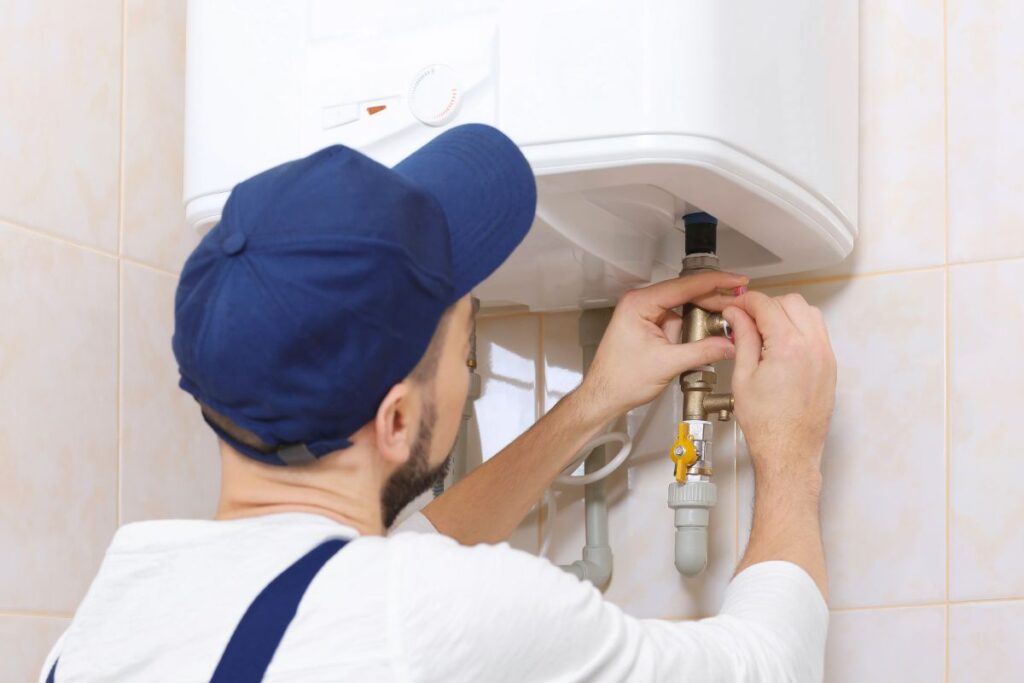
Choosing a water heater is an important decision for a home’s comfort—and equally important for managing energy consumption. Between electric, gas, and heat pump models, each system has its own strengths. The key is to find the right balance between performance, installation costs, and long-term savings. So, which one should you choose?
Electric water heater and its advantages
The electric water heater is the most common model, mainly due to its easy installation and affordable purchase price. It doesn’t require a flue or gas connection, making it compatible with most homes, including apartments. It comes in various sizes to meet the needs of different households. Although it consumes more electricity than a gas model, it can be paired with off-peak electricity rates to reduce energy bills.
You can also read : How to modernise the plumbing in an old house?
Gas water heater and its advantages
The gas water heater runs on natural gas or propane. It’s especially valued for its ability to heat water quickly, making it efficient for large households or those with high water usage. It’s often more economical to run than an electric model, provided the home is connected to the gas network. However, installation is more complex: it requires a flue for exhaust gases, and regular maintenance is necessary to ensure safety.
Heat pump water heater
The thermodynamic or heat pump water heater captures heat from the air to warm the water. It’s a highly energy-efficient solution because it primarily uses a renewable resource. Though its purchase price is higher, it can pay for itself in the medium term thanks to the savings on electricity bills. It’s also eligible for financial incentives such as MaPrimeRénov’ in France. On the downside, it requires adequate space and good ventilation, which can limit installation in some homes
Comparison of the three types of water heaters
| Criteria | Electric Water Heater | Gas water heater | Heat pump water heater |
| Purchase cost | Low | Medium | High |
| Installation | Simple and fast | More complexe ( gas connection+exhaust) | Technical (requires space and ventilation) |
| Energy consumption | High | Medium to low | very low |
| Heating time | Moderate | Fast | Rather slow |
| Long term saving | Low | Medium | High |
| Environmental impact | Low (depending of electricity source) | Less polluting if gas natural is used | Very éco-friendly (use ambient air) |
| Maintenance | Low | Regular (Annual mandatory check) | Moderate (pump inspection recommended) |
| Average life span | 10-12 years | 12-15 years | 15-20 years |
| Best suited for | Small households, home without gas | Large families, home with gas access | Well insulated homes aiming for savings |
Which one seems ideal ?
The right choice depends on several factors: home configuration, number of residents, initial budget, and energy consumption goals. For a small home or occasional use, the electric water heater remains a simple and effective solution. For large families or homes well-connected to the gas network, the gas model offers a good balance between performance and cost. Finally, for those seeking an eco-friendly and cost-effective long-term solution, the heat pump water heater is likely the most advantageous—though it requires a higher initial investment.
This content may interest you : Low water pressure: possible reasons
Each type of water heater has specific benefits. There’s no universal solution—only the right appliance for each situation. By considering household needs, housing constraints, and potential savings, you can make an informed and sustainable choice.
